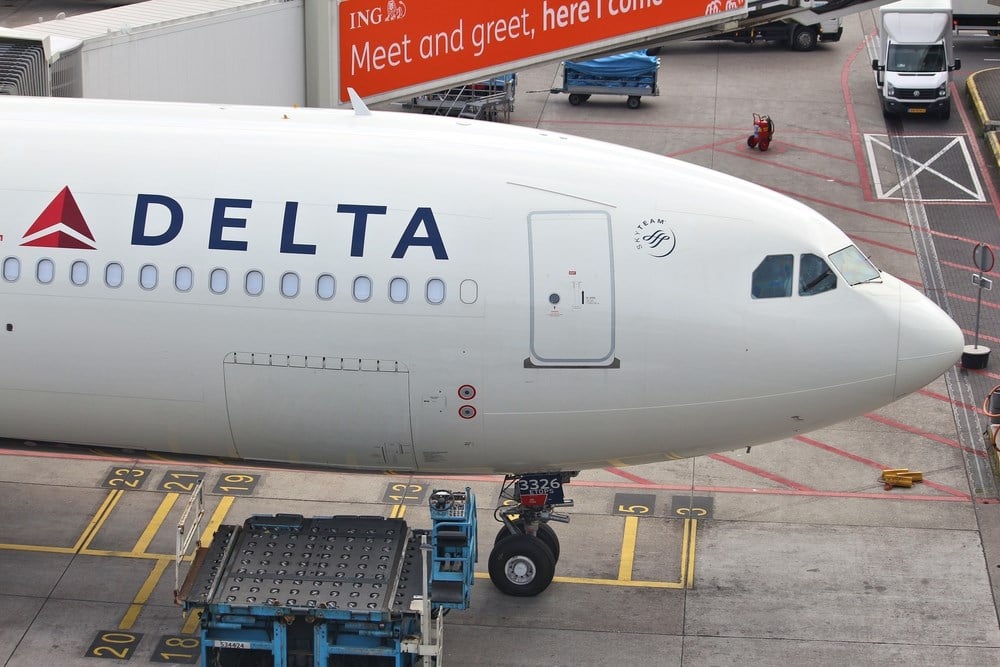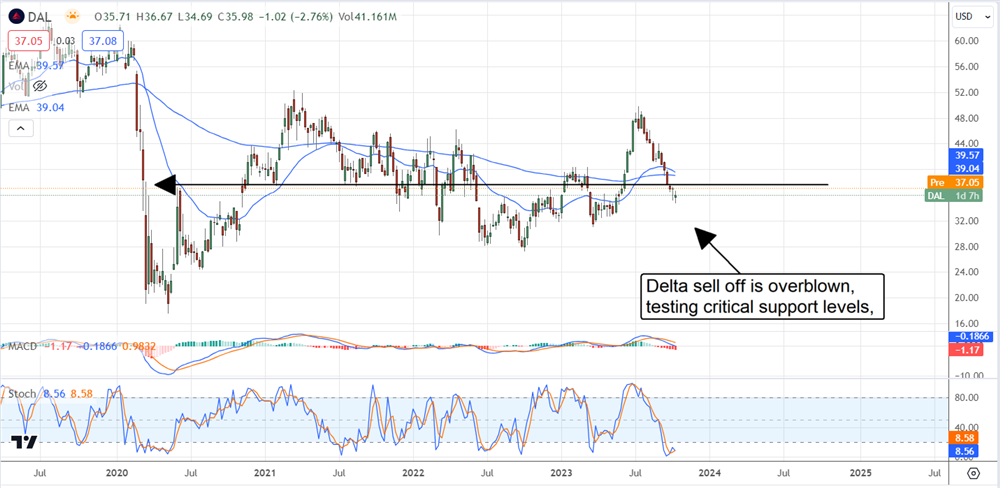
Delta Air Lines (NYSE: DAL) put the fear of rising oil prices into the market when it cut guidance for Q3. While rising oil prices impacted profitability, the 25% pullback in price action that has taken place since July is overblown. The company’s Q3 results and outlook confirm that Delta is the leading air carrier in the US and is on track to deliver results for shareholders this year and over the long term.
Among the takeaways from the report are record-setting revenue, outperformance, and robust cash flow used to pay down debt and dividends for investors. All else aside, the outlook for dividend growth is robust enough to get this market moving.
Delta Air Lines suspended its distribution at the start of the COVID-19 pandemic to preserve capital and has not brought it back to the prior levels... yet. The company also leaned heavily on debt to get through the crisis and has yet to bring that back to prior levels. The opportunity for investors is that cash flow is robust and allows for debt reduction, which the company is pursuing aggressively.
The company has paid down $3.7 billion in debt YTD, with about $0.750 billion paid in Q4. This has the total debt below $20 billion, and the leverage down 2 handles YOY to 3X equity. S&P recognized the improvement with a credit rating that has the company on track to regain its investment grade status soon. In this scenario, Delta and its 6% payout ratio should be able to sustain aggressive distribution increases over the coming quarters/years. An increase to the prior level is worth 300% growth for today’s investors among airline stocks.
Record Results for Delta Air Lines
Delta Air Lines had a solid quarter despite lowering its profit guidance in September. The company reported record quarterly results. The company landed $15.49 billion in net revenue for a gain of 10.8% compared to last year. This is 240 basis points better than expected, driven by strength in all segments. International led the passenger business with an increase of 35%, with premium and loyalty services contributing 17% of segment growth.
Margins are a positive factor in the results. The company’s fuel costs increased but were offset by efficiency efforts. Fuel costs rose sharply from the prior quarter but are down double-digits compared to last year, while non-fuel costs rose sequentially and are up a slim 1.3% YOY. The result is a 30% increase in GAAP earnings and a 35% increase in adjusted.
The guidance also shows the impact of rising fuel costs but is better than expected. The company cut its outlook for Q4 EPS to $1.05 to $.130, but this still provides an opportunity for strength relative to the analysts’ estimates. Most of the freshest targets are below the consensus. Full-year results are expected to top the analysts' consensus and may outpace the company’s guidance, given the Q3 performance.
Delta Provides Value for Investors
Delta’s results show it is clearly on track to sustain its rebound and balance sheet improvements, which suggests that it is a deep value trading at 6X earnings. The company’s historical P/E tends to run nearly double that rate, providing investors with a substantial upside if a price-multiple expansion occurs.
Delta Air Lines is among Marketbeat’s Top Rated Stocks. There are 14 analysts tracked by the platform with a consensus of Buy and a price target 50% above the current price action. Even the analysts' low price target assumes a 7.5% upside relative to the pre-release price, suggesting this market is overextended and ready to rebound.
Shares of DAL are up about 3% following the earnings release and showing support at a critical level. The level is near $36, an important pivot point for this market. Assuming the market follows through on this opportunity, the price action should continue to rebound and possibly surpass the $40 level by year-end.





